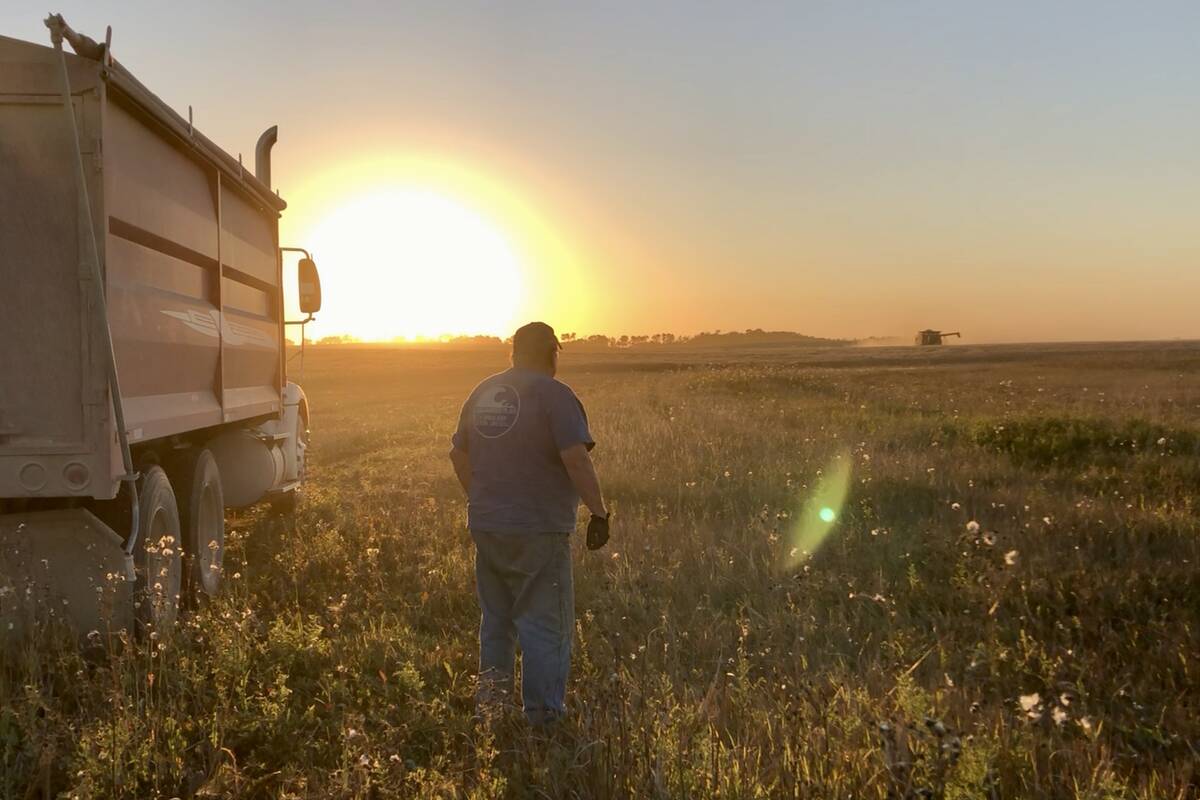Q: I have been dating a widower for a few months. We were getting along well. All of a sudden, he is depressed and feels guilty for loving me and having fun. How can I help him understand that she is not here, without being too forward? I knows he loves me. What can I do to ease his pain?
A: I believe it is healthy and helpful for a widow or widower to meet a new person and have companionship throughout their lives.
Grief has no schedule for when it sets in or how long it lasts. Many people think they have dealt with the loss of someone they love, but find it hard to feel OK with meeting and getting involved with someone new. Becoming caring friends is the first step in any healthy second relationship. The second step is accepting the baggage that you bring to a relationship.
Read Also

VIDEO: Bittersweet harvest for this family farmhand
Bruce Burnett helps his brother harvest wheat and canola for the last time on the family farm in Manitoba where they both grew up.
Grief involves many emotions such as shock, numbness, feeling overwhelmed, abandoned, depressed or angry. These emotions come up often in life and in no particular order. When we had a deep love we often have a long journey to be willing to risk such emotions again with someone else. Part of letting go of guilt is accepting that your late partner loved you, and in realizing that he or she would be hoping for you to find companionship and love for the rest of your life.
Part of coping with grief is in respecting the past. Help your friend talk about his wife and his feelings. Help him share the challenges as well as the wonderful memories of the relationship.
Years ago a widower asked my mother out to lunch after church. My father died the previous year and the new man had been widowed for two. They went to the same church but didn’t know each other socially. They formed a friendship and out of that came love and a desire to spend the rest of their lives together.
When they married, pictures of both his first wife and my father had prominent positions on the dresser. My mother later told me that although she never knew Percy’s first wife, they became friends through the many stories they shared about their first partners.
Another family member of mine lost his wife when they were in their late 40s. A close friend of the couple came to the funeral and provided a lot of support. Out of the support came friendship and out of friendship came love and eventually marriage.
The challenge in a second relationship is not expecting your second partner to think, feel or even react as your first partner did, but to accept them fully as themselves, unique and special and someone to spend the rest of your life learning to know and appreciate.
Two books that can be helpful are Rebuilding by Bruce Fisher and Life After Loss by Bob Deitz.
Peter Griffiths is a mental health counsellor based in Prince Albert, Sask. His columns are intended as general advice only. His website is www.sasktelwebsite.net/petecope.
















